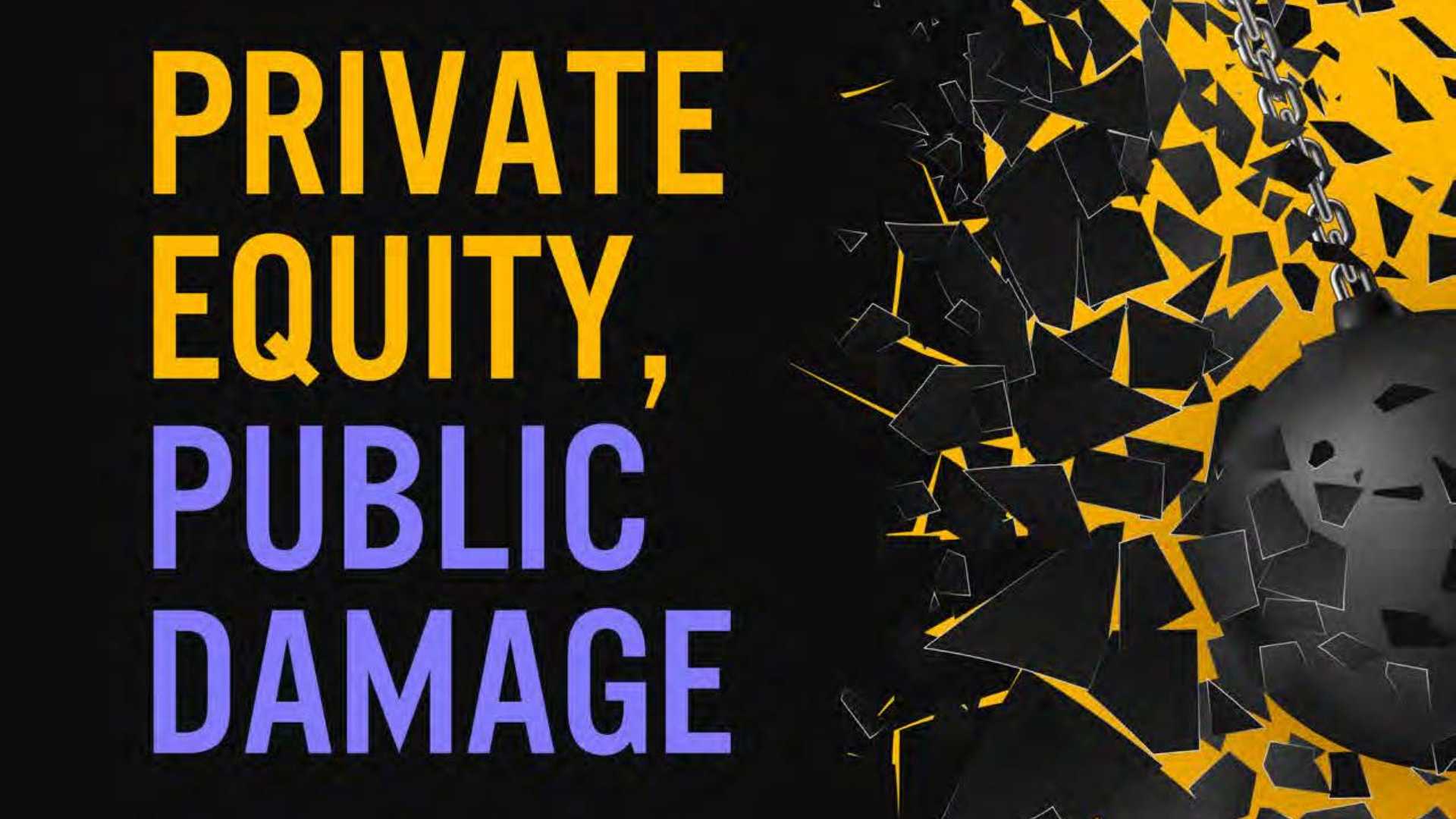
Private Equity, Public Damage
February 14, 2025
How ‘Vulture Investors’ Get Rich Wrecking Companies, Killing Jobs, Endangering the Vulnerable & Spoiling the Environment–And Our Tax Code Helps Them Do It
Private equity (PE) firms use money raised from wealthy individuals and institutional investors like pension funds, university endowments, and sovereign wealth funds to take over and manage companies. Once they take control, PE firms pursue aggressive financial-engineering strategies–such as severe cost-cutting, charging excessive management fees, paying themselves debt-funded dividends, and selling off valuable assets–that prioritize extracting short-term value over the long-term stability of the companies they control. These practices can severely undermine the financial viability of the targeted businesses, with workers, consumers, communities, and other stakeholders bearing the brunt of such cost-cutting and revenue extraction.
The tax code has enabled the private-equity industry through special tax breaks that create perverse incentives to ruthlessly “extract value” from takeover targets.
Private equity investing has been described by leading financial reformer Sen. Elizabeth Warren (D-MA) as “legalized looting” and PE firms as “vampires”. The vampire image is apt because of the industry’s model of taking over companies for a few years, “bleeding” the firm of cash through short-term strategies that can hurt in the long-run, then moving on to the next “victim.” One study of almost 500 public companies taken private by PE firms through leveraged buyouts–acquisitions funded by a big loan secured against the takeover target, which is also responsible for repayment—found they were 10 times more likely to go bankrupt than similar firms that had not been acquired.
The extractive business model of private equity is unknowingly subsidized by the public in the form of an accommodating tax code. Preferential tax rules, income-misclassification schemes, and other loopholes–plus weak IRS enforcement of those restrictions that do exist–help make PE particularly profitable.
Among the key points of the report:
- PE firms raise money from wealthy individuals and institutional investors—including pension funds, university endowments, and sovereign wealth funds—to acquire and manage companies.
- PE investors use several tactics to wring as much money out of acquired companies as possible: aggressive cost-cutting through mass layoffs, charging excessive fees for questionable services, and taking on additional debt to pay dividends to themselves—which often leads to further cost reductions.
- Special breaks in the tax code make private equity even more lucrative for the firms and their wealthy owners and incentivize the financial engineering and predatory extraction that undermines the viability of the companies they acquire.
- Just eight top executives at two of the biggest private equity firms–Blackstone and KKR–saved a collective $335 million in taxes over a recent five-year span thanks to the carried interest loophole.
- An expired business tax break on loan interest that private equity is trying to restore as part of the effort to permanently extend the expiring parts of the 2017 Trump-GOP tax law would save the industry a fortune and also result in burdening acquired companies with more destructive debt.
- Victims of private equity–including homeowners, employees, and environmental activists–share their stories of corporate exploitation, hardball tactics and busted dreams.
Download the full report here: https://pestakeholder.org/wp-

